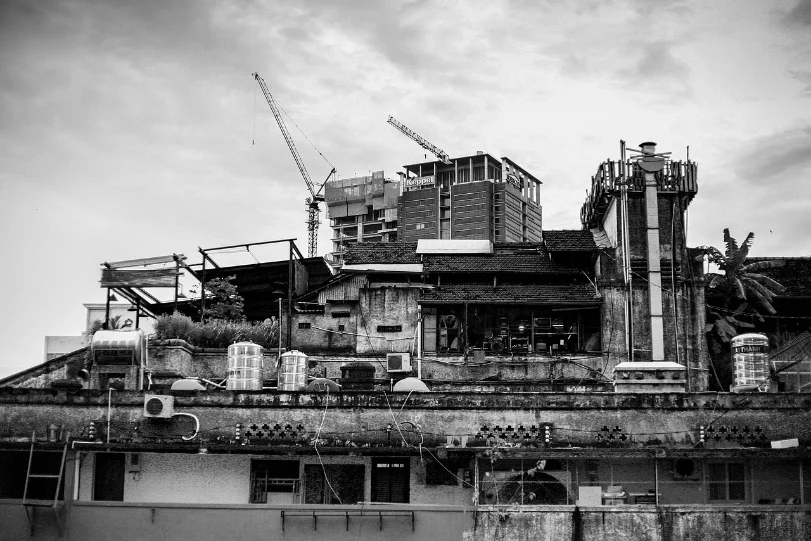In the past year, Vietnam’s real estate industry has faced significant challenges, including developers failing to make interest payments on their debts. This situation was exacerbated by government actions that came at an inopportune time, causing a credit crunch. Fortunately, the negative impact on the broader economy has been limited.
Last month, the real estate sector had a tough time on the Ho Chi Minh City stock exchange, experiencing a sharp decline of almost 16%. According to Dragon Capital, a prominent investor in Vietnam, this made it the worst-performing sector in the market.
This decline marked the culmination of two years of turmoil in the shares of real estate developers. The troubles from last year spilled over into the corporate bond market, affecting project development and leading to the existence of unoccupied high-end properties.
Which developers are facing difficulties?
The biggest publicly-traded real estate developer facing difficulties is No Va Land (NVL.HM), as their stock has plummeted by over 80% in the past year. This drop came after they missed interest payments on both domestic and foreign bonds, which led to a dispute with some international creditors.
Vinhomes (VHM.HM), which is part of Vietnam’s largest conglomerate, Vingroup (VIC.HM), has also seen its shares decline by 13% this year.
Additionally, there have been recent defaults by non-publicly-traded companies, including Hung Thinh Corp, a significant developer in southern Vietnam, and Van Thinh Phat. Notably, the chairwoman of Van Thinh Phat was arrested last year as part of an anti-corruption crackdown, as reported by VISRating, a company partly owned by Moody’s.
In Sun Group’s “Mediterranean town” on the beautiful southern island of Phu Quoc, you can see empty buildings with unfinished interiors. Meanwhile, in Hanoi, there are half-finished high-rises surrounding gleaming towers constructed by Sunshine, another developer.
The real estate industry is under increasing strain, as approximately $6 billion worth of real estate bonds are scheduled to mature this year and the next. This is almost three times the amount that matured in 2022.
What is the likelihood of spillover risks?
Back in September, the Asian Development Bank gave a heads-up about the possibility of issues in corporate bonds and real estate markets affecting the banking sector, although the problematic bonds were only a small part of the overall bank loans.
Jean Xavier from S&P Global mentioned that there’s “no significant risk of widespread problems spreading,” but did caution about a potential slowdown in important consumer industries. Also, there’s concern about how this could negatively affect sectors closely connected to real estate, like construction and building supplies.
Which banks face the highest level of exposure?
The banking system has about 25% of its total loans linked to the property sector, primarily in the form of mortgages. Fortunately, these mortgages are generally considered low risk, thanks to the strong job market.
S&P Global reports that corporate bond holdings make up approximately 3% of the total loans held by banks, with an estimated one-third to half of these bonds being connected to the property market.
Regarding the banks most heavily engaged in the real estate sector, as per VISRating’s 2022 data, the lineup includes Vietnam Prosperity Bank (VP Bank) (VPB.HM), Asia Commercial Bank (ACB.HM), Sacombank (STB.HM), Southeast Asia Bank (SSB.HM), and Maritime Bank (MSB.HM). It’s worth noting that among these, VP Bank is the only one ranked among the largest lenders.
What was the origin of the turmoil?
Many experts attribute the most significant challenges in the real estate sector to a prolonged anti-corruption campaign that the authorities intensified toward the end of the previous year.
They point to the arrest in October 2022 of Truong My Lan, the chairwoman of Van Thinh Phat Holdings Group, on charges related to financial fraud. This event is seen as a critical moment when confidence in the market started to decline.
This arrest came amidst stricter regulations regarding transparency and the private placement of corporate bonds that were introduced in September. This period also coincided with an economic slowdown. Consequently, authorities had to put these regulations on hold a few months later due to a market freeze.
With bond issuance slowing down and bank loans decreasing, the government repeatedly urged banks to increase lending to stimulate economic activity.
Can Vietnam be compared to China?
Both China and Vietnam are facing problems in their real estate sectors due to poorly timed government actions, high corporate debt, and an oversupply of properties. However, the situations in the two countries have some differences.
S&P’s Xavier Jean mentioned that Vietnam’s long-term outlook appears more promising. This is because Vietnam has a younger population and a growing middle class, which is expected to maintain strong demand for real estate.
In comparison to China, Vietnam has a less severe issue of oversupply and speculation. Additionally, the real estate sector plays a smaller role in Vietnam’s economy.





